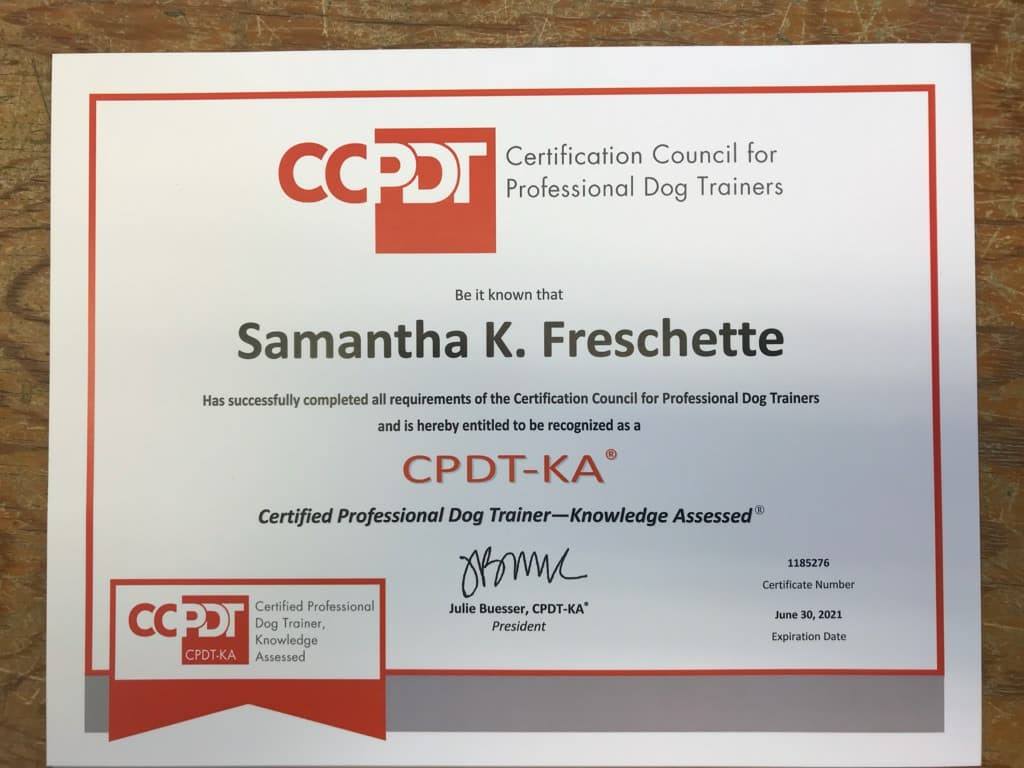What does this mean exactly? It means that in March 2018 we wrote a 250 question test along with hundreds of other dog trainers world wide to assess our dog training knowledge and skills and came out with a 92%! What it means for our clients is when you hire us you get someone who has over 300+ hours of experience, is committed to continuing education to learn new and improving theories and techniques, has a signed attestation from a veterinarian stating that we demonstrates positive relationships with clients and safe handling of dogs and is respected by their peers as a fellow professional.
The CPDT-KA test is quite in depth and covers the following topics (percentage of covered questions included):
Instruction Skills 38% - these questions cover topics such as communication skills, teaching skills, business practices and ethics and how to set up a proper training environment.
Animal Husbandry 6% - these questions cover topics such as different canine diseases, vaccination schedules, nutrition, proper grooming, behavior signs that might lead to referring to a vet and how to work with dogs that may have physical or behavioral limitations.
Ethology 10% - these questions cover topics such as domestication, development, body language and physical characteristics.
Learning Theory 38% - these questions cover topics such as operant conditioning (types of reinforcements, types of punishments, extinction, chaining commands etc), classical conditions (counter-conditioning behaviors and desensitization), possible training problems and how to solve them, and how to manage a dogs environment.
Equipment 8% - these questions cover topics related to different training and management equipment such as leashes, harnesses, halters, pinch collars, crates and x-pens.
**information provided from the CPDT-KA Handbook
We were very fortunate in that a lot of these materials were covered in our Certified Dog Trainer Diploma course. This being said we still spent many hours prior to the exam studying canine textbooks and online research papers. We also took a refresher course that provided us with even more new and interesting education. It also had many practice questions which were a wonderful training aid.
At the moment the dog training industry is unregulated. Anyone can decide they want to be a dog trainer and start up a business. There is various different courses and schools offering different educations one can choose to get - or they can decide to just start teaching and hope to gain experience. It is always important when hiring any type of service to look into credentials of the person you are hiring. Whether you choose someone with credentials or based on their experience is up to you, but you do have the right to be informed about the person you hire. Make the choice that best suits your situation.
We are very excited to be able to say we are formally certified through an independent body, the Certification Council for Professional Dog Trainers (CCPDT)!


 RSS Feed
RSS Feed
